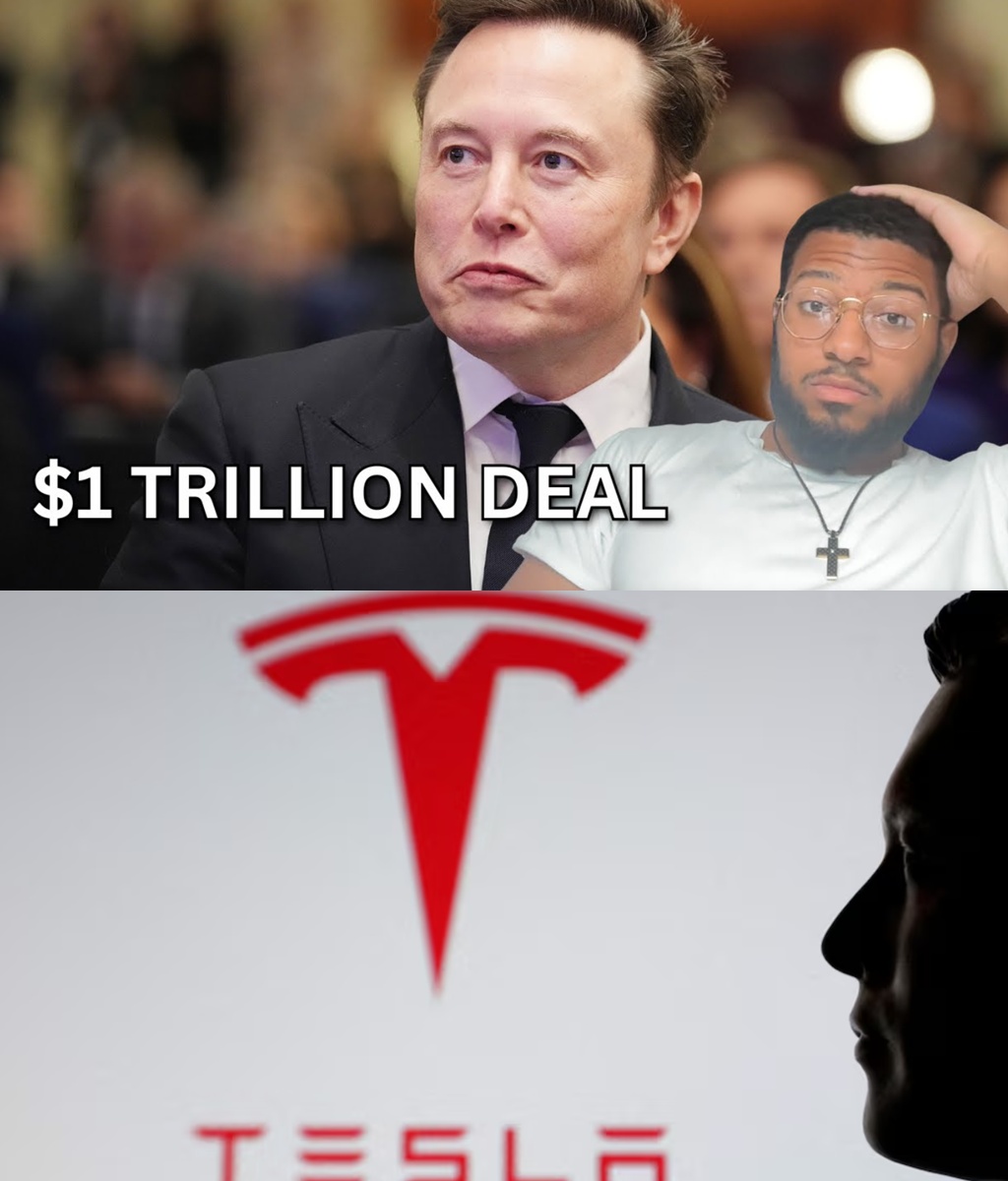When news broke that Elon Musk could secure a $1 trillion pay package, it sent shockwaves not just through Wall Street, but across the entire corporate world. Never before has a CEO compensation plan carried such astronomical figures—or such massive implications for the future of a company. For Tesla, this isn’t just about Musk’s paycheck. It’s about strategy, ambition, and a gamble that could determine the company’s place in the next industrial revolution.
The Structure Behind the Trillion-Dollar Deal
Musk’s potential payday isn’t a simple salary. Instead, it is tied to an aggressive performance-based package. The plan hinges on Tesla achieving sky-high market capitalization milestones, revenue benchmarks, and operational breakthroughs. In other words, Musk only earns if Tesla dominates.
By aligning his compensation with performance, Tesla’s board is signaling two things: absolute confidence in Musk’s ability to deliver, and a willingness to tie the company’s fate to his vision. Critics argue it’s excessive and risky, but supporters counter that no other CEO has built as much value for shareholders in such a short time.

What’s at Stake for Tesla
Behind this monumental package lies Tesla’s roadmap. The company is preparing to launch the much-anticipated Tesla Model 2, an affordable EV designed to democratize electric mobility worldwide. At the same time, Tesla is doubling down on self-driving technology, energy storage, and even its controversial humanoid robot project, Optimus.
The trillion-dollar package essentially forces Musk to deliver these bold promises. Success would cement Tesla as not just an automaker, but as a diversified tech empire shaping the future of energy, robotics, and transportation. Failure, however, could leave the company vulnerable to rivals in China, legacy automakers, and shifting consumer demand.
The Critics vs. The Believers
Not everyone is cheering. Governance watchdogs have blasted the package as excessive, warning that it concentrates too much power in Musk’s hands. Detractors argue no individual should wield such influence over a public company. But Tesla’s investors, many of whom are fiercely loyal to Musk, see things differently. They believe his unique ability to inspire markets, innovate at breakneck speed, and disrupt entire industries justifies the unprecedented package.
Why Musk is Betting Big on Himself
For Musk, the deal is more than money. His net worth is already beyond comprehension. What matters is leverage: the ability to pursue grand visions without compromise. From colonizing Mars through SpaceX to integrating AI and robotics into daily life, Musk’s ambitions require Tesla to be a financial juggernaut. This package is designed to keep him focused on scaling Tesla into a company worth several trillions—something that would make today’s valuation look modest.
A Turning Point for Corporate History
Whether you admire him or criticize him, there is no denying this: Elon Musk’s trillion-dollar package could become the most consequential CEO compensation plan in history. If Tesla achieves its targets, it won’t just mean a payday for Musk—it will mark the dawn of a new corporate model, where leadership, innovation, and risk are rewarded on a scale the world has never seen.
The stakes couldn’t be higher, and once again, all eyes are on Elon Musk. Will he pull off the impossible? If history is any guide, betting against him has rarely paid off.
News
“WE DID EVERYTHING WE COULD” — LITTLE BOY DI-ES AFTER BEING PULLED UNCONSCIOUS FROM BOBS FARM POOL, COMMUNITY LEFT SHATTERED
A four-year-old boy has died after being pulled unconscious from a pool in a popular coastal holiday area of NSW. Credit: Google…
“THANK YOU… AND GOODBYE…” — MAGDA SZUBANSKI’S HOSPITAL WORDS STOP AUSTRALIA IN ITS TRACKS
Australia is holding its breath tonight. In a country that grew up laughing with her, quoting her lines, and seeing…
“SHE NEVER SAW THIS COMING” — Gina Rinehart’s $10 Million Invitation to Rihanna Sparks Global Tears and Hope for Australia’s Most Forgotten Children
When Australia’s richest woman makes a move, the world usually expects power, politics, or profit. This time, Gina Rinehart did…
“WHY WON’T THEY RELEASE THE FOOTAGE?” — DJ Warras Mur-der Sparks National Outcry as South Africans Demand CCTV Truth
When news broke that Victor Majola — widely labelled online as the “killer” of beloved DJ Warras — had sent…
“TIME IS WORKING AGAINST US” — Police Issue Grim Update in Hu:nt for Missing Family as Victoria’s Bushfire Crisis Deepens
A family-of-three is missing and more than 20 homes are potentially lost as out-of-control bushfires continue to burn across Victoria….
“I DIDN’T KNOW IF THEY WERE ALIVE” — Chi:lling Twist as Witness Reveals What He Saw Before Saving Two Toddlers in Banya Crash
Two toddlers, aged one and three, remain in critical condition at Queensland Children’s Hospital after suffering significant head injuries in…
End of content
No more pages to load












